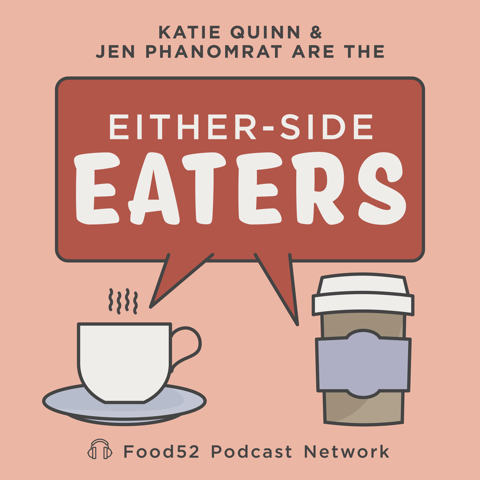People often ask me: What’s it like to be pregnant in Paris?
My answer depends on my mood. Some days I think it’s awesome, with perks like occasional sips of wine and slightly-more-chill doctors.
Other days I think of a poster that used to hang somewhere in my high school. It read: Ginger Rogers did everything Fred Astaire did, except backwards and in high heels.
Pregnancy is a blessing. But it can also be tough, even more so in a foreign country. Sometimes I feel like Ginger Rogers, shuffling around Paris backwards, in high heels, and very, very pregnant.
The moment I found out I was expecting, I immediately texted my husband, Guillaume, who was on his way to meet me.
He texted back a girl’s name, with an emoji heart.
I replied with a boy’s name, and another emoji heart.
We had already tentatively chosen our offspring’s name.
Finally, I would be crossing the sacred threshold from daughter to mother, cared-for to caretaker. Guillaume and I had recently moved from my hometown, New York, to his—Paris. And soon we’d have our own French-American bebé—who would speak two languages and understand the intricacies of both distinct cultures.
He or she would grow to appreciate the neighborhood brasserie as much as an upstate diner; to love a baguette traditionnelle as much as a bagel with cream cheese (generous on the schmear).
It was one of the most exciting times of my life.
But then, the universe put a stop to my party—nuh uh, girly, not so fast.
Like a hazing into motherhood, I was suddenly sick—real sick. Food was once my friend, and one I looked forward to meeting at least three times daily. In fact, I often spent the more mundane parts of my day methodically planning our evening rendezvous. But from one day to the next, food was no longer my friend—more of an annoying acquaintance you’re obliged to hang out with but immediately regret afterward.
Ceaseless nausea (if only it were truly just “morning” sickness) was the first signal that my body was no longer my own. And all while living smack dab in the food capital of the world—or at least the food capital of France (unless you ask someone from Lyon).
Some days were downright demoralizing.
I’d torture myself by walking home on Rue des Martyrs, a charming pedestrian market street, and stare longingly at the boucherie case of glistening rotisserie chickens, their mouthwatering fat dripping onto the new potatoes slowly roasting below them.
I’d continue down the street, passing by people sitting on terraces, eating little heaps of beef tartare and salades chevre chaud, while mindlessly throwing back glasses of rosé. I’d gaze at them enviously before heading home and submitting to a small bowl of benign carbohydrates.
Because I had worked in restaurants in the past, preparing food under the tutelage of demanding chefs who, as it turned out, took issue with my tendency toward daydreaming, cooking at home, for just Guillaume and myself, was a pleasure. I happily shared dish-cleaning duty, but generally took to doing the shopping and cooking for us both.
As a newly donned Parisienne, every trip to the market was an opportunity to learn—and to prove myself as a capable human adult. My grasp of French was still limited, so a typical exchange usually went something like this:
Butcher: Madame? (Note: Once you hit 30 in France, the entire country gets the memo, and you are henceforth addressed as madame.)
Me: 1/2 kilo of the beef, please.
Butcher: Which cut would you like?
Me: It is to cook the bourgougnon tonight. The beef that has no bone, it is good. Maybe the top of the cow arm?
I expect him to be very impressed with my culinary ambitions, sparking some bovine camaraderie. But instead, he glances at me momentarily, then digs a large spoon into one of his many bowls of meat, and piles my beef chuck onto wax paper.
In the early months of pregnancy, my cooking repertoire narrowed to a handful of dishes I considered safe, meaning their smell alone wouldn’t make me teary-eyed, because being nauseated made me sad.
I took to planning less and listening to my body more, eating small amounts of whatever felt good: pasta, ramen, white rice—a roulette wheel of scantily seasoned carbs.
I ate without judgment. If something strange sounded appealing, I prepared it immediately. If it had a hint of nutritious value, even better. One day I found myself munching away on baguette filled with tuna fish and a thick spread of butter. Grateful for a glimmer of my appetite, I cared little about the unusual combination of ingredients.
For me, as for most pregnant women, there is a bright light at the end of the first trimester: It’s only temporary. This (nausea) too, shall pass. That, and of course the whole miracle-of-pregnancy thing, helped get me through the first three months.
As the weeks passed, my stomach growing conversely with my continually shrinking wardrobe, I started enjoying the advantages of being pregnant in Paris (as well as some previously shunned high-waisted leggings).
The food aversions waned and little by little, my appetite was back to its perky self. The challenge became deciding what to eat. Or rather, what not to eat.
My French OB-GYN was a lax older man with a healthy tan, even in the dead of winter. I imagined him spending the better part of the year in some posh beach town on the Cote D’Azure. He was a playful guy, and liked to say it was time for my “strip tease” before routine examinations. When I cried (happy tears!) the first time we heard the baby’s heartbeat, he slapped my cheek gently.
“Oh come on,” he said. Apparently, French doctors weren’t big on gratuitous displays of emotion.
Though he poked fun at me for being a Type-A Americaine, he was a good doctor. He had, in fact, delivered my husband and his sister, two healthy, well-adjusted Parisians, so I trusted his advice.
When he said it was fine to have things like sushi and wine—avec prudence—I couldn’t help but feel relieved. I had always figured that with pregnancy, my maternal instinct would kick in and wine would hardly tempt me. But sometimes it did, particularly the ritual of ordering a nice glass of vin to accompany a good dinner. I appreciated being in a country with a more relaxed attitude toward pregnancy, even if it cost me a little cheek slapping.
Meanwhile, my french in-laws swore that a little sip of calvados (apple brandy) was in fact good for le bebe.
The doctor’s assistant told me to quit my morning bowl of cereal. “The baby needs a big breakfast. Protein,” she said with a thick Russian accent. “Try scrambled eggs.”
An elderly woman in our apartment building told me to drink whole milk and eat green apples—not red or golden, but green apples.
My mom said I should avoid fried foods, and friends back in America warned me against unpasteurized cheese.
I received all types of advice—both solicited and unsolicited. In the beginning, I tensed up like a cat in water. But after a while, I got used to it, just like I got used to my body being fair ground for commentary and occasional belly-rubbing by strangers. Because for the most part, people mean well.
There’s so much advice out there—and half of it’s conflicting. Eventually, I learned to sift through and choose for myself. These, I later realized, were my first decisions as a parent. I was learning to trust my gut.
Finally, I was able to partake in the food of my new home: those gorgeous rotisserie chickens; the ooey-gooey-cheesy raclette parties; the boeuf bourguignon; and yes, an occasional small glass of wine.
But I couldn’t help but be ever-conscious of the connection between our baby and me. Whatever I ate, she ate—so I was careful not to overdo it.
Late in my second trimester, Guillaume and I visited his grandparents in Normandy. I passed on the calvados, but my ears perked up at the mention of oysters. According to my research, they were also okay to eat avec prudence (so long as they were immaculately fresh).
On a chilly Sunday afternoon, Guillaume and I drove to Cancale, a small seaside town famous for its huîtres. Rumor has it Louis XIV had Cancale oysters delivered to his palace in Versailles.
If they’re good enough for the king, who was I to turn my nose up at them?
We ordered a dozen from an oyster booth right next to the sea. My mouth watered while I watched a 20-something girl with long acrylic fingernails expertly shuck our mollusks. Then we sat on a stone wall with a glass of Sancerre (him) and Perrier (me), and ate them with just a squeeze of lemon. Guillaume had nine and I had three, savoring each mouthful of their fresh, briny goodness.
It was crisp but sunny, and we sat for a while and let the sunshine warm our winter skin. I looked out at the sea, and watched the seagulls swoop down to pick at the washed up shells. I rubbed my stomach gently and made a mental note to tell my daughter one day about the first time she tried oysters.
Satisfied but still hungry, I turned to Guillaume. “So, what should we do for lunch?”







Join The Conversation